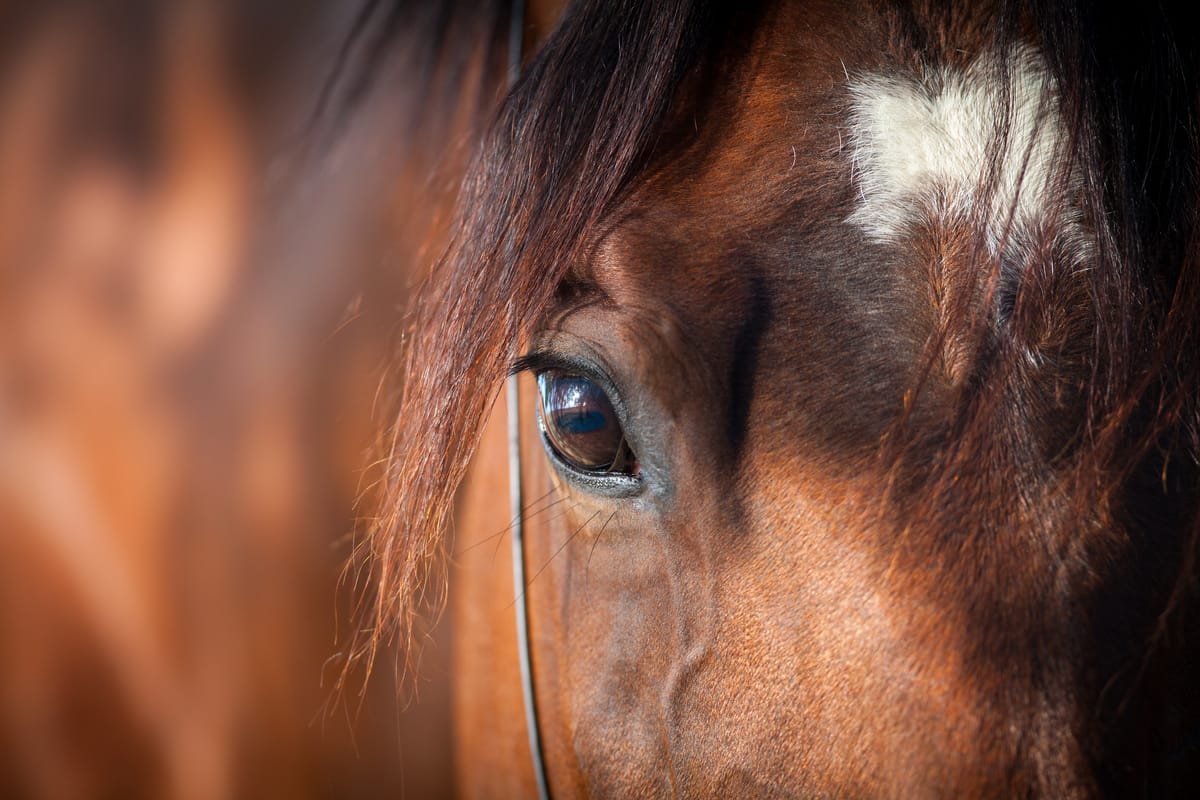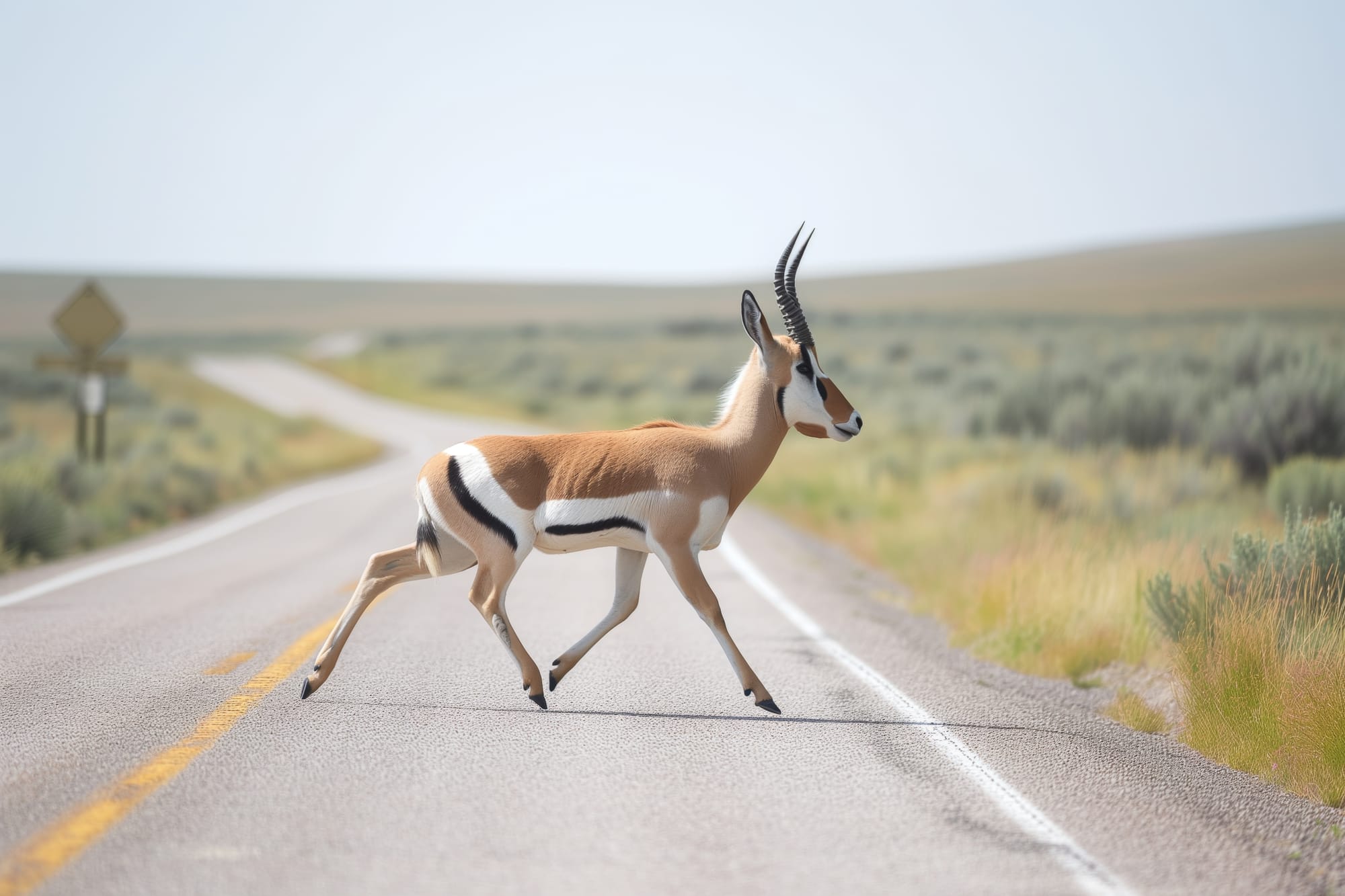Expecting the Unexpected

A majority of equestrian sports is being prepared for anything and everything. Colic is still a leading cause of death for equine athletes, due to the poor evolution of their system over time and the unrealistic expectations and burdens humans have placed on them since their domestication.
Horses are land grazing mammals designed for grazing wide open spaces, upwards of 15 miles per day. So what did humans do?
We put them in tiny cages where their bone density was stunted.
We fed them crap feed with poor quality ingredients.
Then, we asked them to perform at the top levels of the sport and were shocked when they couldn't stay sound.
Are you sensing a theme?
Just as humans are the product of both nature and nurture, environment and genetics combined influence outcomes.
You could have the most brilliantly bred, well-put together Grand Prix Jumper with a sh** disposition. I saw them everywhere adjacent to and in the top arenas of the sport, usually being handed off to the daring men from developing countries hungry to soar out of poverty on a horse no one else wanted to ride.
But then you can also have the Cinderellas of the sport. They're hard to find these days, but they are out there. I consider Dixie a Cinderella story, because she had to overcome so many odds to get where she is today, yet she is one of the best horses I've ever ridden.
Although she isn't an easy keeper, she's got the heart of a lion and the will of a warrior.
There's a reason I call her my "Big Bay Warrior Queen".
When I got a call from one of my new, wonderful trainers out of the blue, my heart sank. When I picked up the phone, I immediately asked, "Is she okay?"
When she responded with hesitancy in her voice, I was already gathering my socks and cowgirl boots to book it to the barn.
I asked them to follow my tried-and-true colic protocol that had gotten us out of a bind so many times before. The next thing I did was phone my vet, and ask for the emergency line.
"I can be there in 30 mins," the kind on-call vet said when she called me back. I had only met her once before but she had a wonderful reputation.
I was in the car in under 10 mins and at the barn 20 minutes later. I held my breath as I turned into the gravel drive, only to have an antelope jump out in front of my Jeep and frantically leap across the street.

"Good omen," I remember thinking.
I sped down the drive much faster than I ever would in any other circumstance. Dixie needed me, and I was determined to get to her as fast as I could. As soon as I walked into the indoor, I greeted her with my usual, "Hey Baby Dixie".
Her ears perked up and her eye tried to breakthrough a twinkle like a star in the night sky.
She did not look good. Her belly was distended, my trainer pointed out. She was standing awkwardly and displaying text book signs of pain and colic.
I grabbed the lead rope and went on autopilot. Positive thinking. Happy music. Just keep putting one foot in front of the other.
The vet arrived as promised. She assessed her vital signs and they were mostly positive. We were in the early stages. I exhaled deeply, knowing that she was finally in a place I could count on in the moments that mattered instead of having to do it all by myself.
I finally was part of a team again.
She immediately sedated her and gave some pain medication so she could perform a rectal exam. She didn't feel anything terribly bad, but at the same time a horse's stomach is so large and complex that many times the only way to really find what's happening is to open them up.
She suggested tubing her to give her water and electrolytes and then continue walking with a little trotting to see if we could get her to bump the gas out.
"One of our Grand Prix jumpers is a gas colicker," my trainer said.
Out of all my years around horses, gas colic wasn't something I saw in the Midwest or on the East Coast. Maybe I had just been lucky up until that point in my life, because it is incredibly hard to watch, especially as an owner, when your horse is in pain.
There were many times she tried to drop to the floor, but we pulled her up. I gave it until 9pm but when she still hadn't passed gas or had a stool, it was go time.
My trainer was already five steps ahead, hooking up the trailer. I knew the moment I met her, this woman had a lot to teach me. Her dedication is what carried me through and I wouldn't have been able to execute without her.
I immediately got on the phone with my emergency vet clinic, nearly 2 hours away, but one that produces far better outcomes than clinics that are twice the price, rarely successful, and don't care about education and scientific research. They mainly just care about money for their shareholders (and it shows).
The good clinic connected me with the on-call veterinarian, a kind man with French accent who spoke elegant English. I explained to him the situation and asked if he recommend we go straight to his emergency clinic, or if I should opt for taking her to my local veterinary clinic with a skeleton weekend crew.
At this point, her vital signs were still somewhat positive, so he suggested I talk to my local vet about taking her there. I am incredibly grateful the local vet was direct and honest with me when she said she should go to the emergency clinic.
Being overly vague or too kind with your words during critical situations doesn't do anyone any favors. It's better to be direct, honest, and prepared.
Within ten minutes, and of course not without a fight, she was loaded in the seven-horse slant. I followed behind, doing my best to hold it together by distracting myself with an audiobook for the two hours it took to get there.
When the breezeway opened, I remember thinking "ollie ollie oxen free". Finally, we made it to the best possible place in the whole state she could be to help her.
The tech was the only one there at the time, but the other team members quickly arrived and immediately began treating her with another tubing. They struggled to get the tube into her throat because at this point, which we would only learn post-operation, her intestines were pushing on her esophagus which was causing a kink. We had to use a twitch, she writhed at first, but she eventually relaxed and cooperated.
Inside the padded room, I struggled with the visuals of her getting poked and prodded and handled by total strangers. I knew they were trying to help her, but I don't think she knew at first.
What I wasn't prepared for was the violent thrashing.
That level of pain was not something I had experienced in this lifetime. She did go down once in the padded room, but thank goodness for my badass horsewoman trainer who got her right back up and commanded the entire space. Dixie needed someone to lead her through this and I wasn't strong enough then and there. I will forever be grateful for her spending her Friday night with me and my mare in the emergency room when she could have been anywhere else.
I forced myself to take a step back from her and let her be worked on. When it came time to sign the paperwork was when it sunk in that this was real, it was happening, and I was going to have to make big decisions about big things while everyone important in my life was fast asleep.
Once they took her to an area where I wasn't allowed, I went out to my car to sit and wait. The rule was: No news was good news. So I waited, and I prayed the phone wouldn't ring.
But it did.
Read the next chapter: Trusting the team and making Hard Decisions
Inspired by our story? Please consider donating to Dixie's GoFundMe